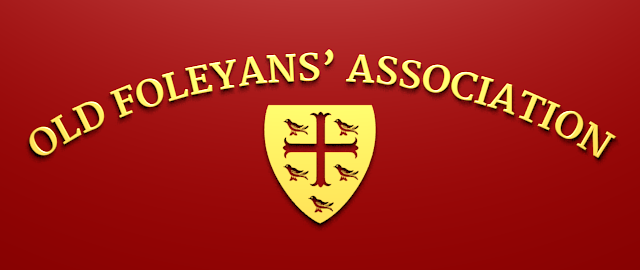


by Ann Tomlin (known at school as Betty Ann Slater)
I was delighted to read in the July edition of The Old Foleyan an article from Brenda Akester. In September 1953 I was a ten year old with a thick Suffolk accent who lived in a remote farm cottage and had attended a small village school. I was confused and scared, not least because I suddenly found myself called Betty, when for ten years I had been called Ann. I am not sure I even knew Betty was my first name, and for some days I did not realise that teachers were talking to me unless they were looking at me directly. I was far too daunted to say anything. On the first day I had the badge sewn on my hat incorrectly and a kindly fifth former told me how to correct it. The teachers all seemed very stern and wore gowns, which was also alarming.
Then on an afternoon in that first week, to teach biology, into the classroom walked, almost bounced, this attractive young woman who radiated happiness. To my absolute delight, she taught about nature and the countryside, about digging in the garden, all the things with which I was familiar. Immediately the school felt more of a friendly place. I loved her lessons and looked forward to them. I would not have been able to define it then but looking back I felt that she enjoyed teaching us, and this came across to me. Given the era and the strictness of the rules, she is, even now, my ideal of a good teacher.
I settled down and made friends. I was reasonably bright and good at sport, which helped, but I was totally uncultured. I was very fortunate to have been born when I was and to be able to have such a good, free education. The 1944 Education Act opened up free secondary education to girls and those from working class backgrounds. This included the eleven-plus exam, which gave entry to grammar schools. My brother, 12 years my senior, was denied such opportunity.
I left at fifteen, despite encouragement from some teachers to go on to sixth form and possibly teacher training. I went to the ‘tech’ at Bury St Edmunds for 2 years, where I remained as ‘Betty’. I did a couple of A-levels there, plus a secretarial course which included accounts to trial balance. Again, I was encouraged to go to college or to take up an apprenticeship with British European Airways, but I felt that it was time that I earned money and helped out at home. Or maybe that is just the excuse I tell myself. Had I wanted to pursue that course, I would no doubt have done so.
Once I left full-time education, I dropped the ‘Betty’, which had never been used at home, and have been ‘Ann’ ever since. Again, I was born at a lucky time. There was much scope for jobs and I went to work at Newmarket Hospital as a medical secretary, where I remained until I left to have my children. The Grammar School was far from perfect and the boys could suffer harsh punishments. It put no emphasis on creativity and worked to constrain our spirits and also to rid us of our accents. But if it had not been for Rab Butler’s Bill, I and many others would not have had such opportunity and I would not have had the pleasure of being taught by such a teacher as Brenda Akester.